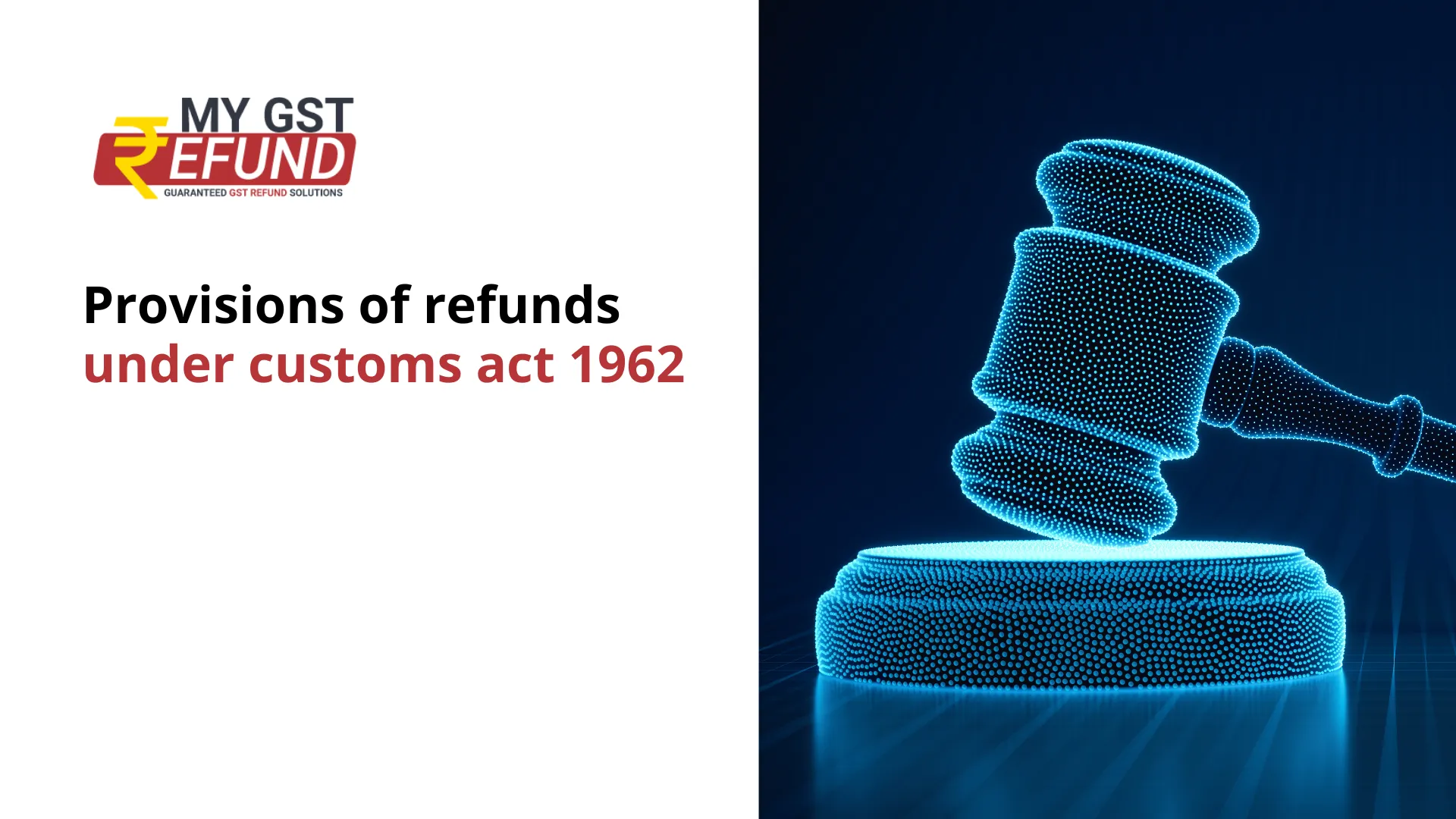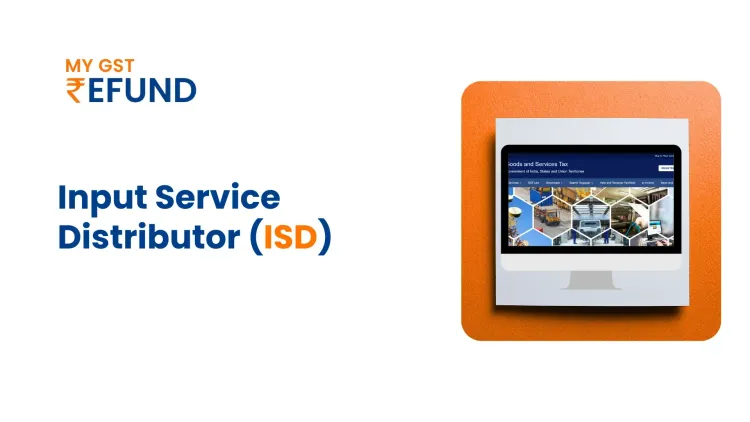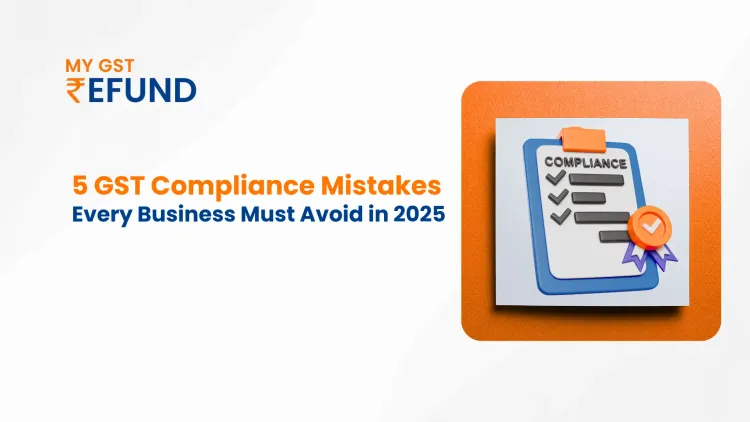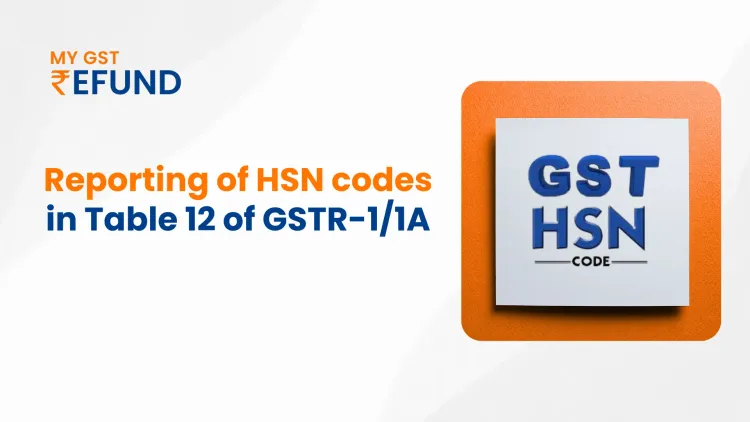Section 26 of the Customs Act 1962 allows for getting back export duty paid, Section 26A of the Customs Act 1962 deals with getting back import duty in certain cases, and Section 27 of the Customs Act, 1962 allows claiming a refund if you paid too much import duty.The relevant provisions of the Customs Acts are summarised as under:
Refund of export duty in certain cases (Section 26)
If duty has been paid on exported goods, it will be refunded to the person who paid it, under these conditions:
(a) If the goods are returned to the original person, not for resale.
(b) If the goods are brought back into the country within one year of export.
(c) If a refund application is filed within six months after the customs officer clears the goods.
Refund of import duty in certain cases (Section 26A)
(1) If duty has been paid on imported goods cleared for home use, the duty will be refunded to the person who paid it if:
(a) The goods are defective or do not meet the agreed specifications with the supplier, and have not been extensively used except to check for defects.
(b) Customs officials are satisfied that the goods are the ones imported.
(c) The importer has not claimed drawback under any other provision of the Act.
(d) The goods are either exported, abandoned to customs, or destroyed in front of customs officers within thirty days of clearance for home use.
The Principal Commissioner of Customs or Commissioner of Customs can extend this period up to three months for valid reasons. This rule does not apply to goods involved in criminal activities.
(2) Applications for duty refunds must be submitted within six months from the relevant date, using the prescribed form and method. The "relevant date" is:
(a) The date of customs clearance and loading for exportation if the goods are exported.
(b) The date of relinquishment of title if the importer abandons the goods.
(c) The date of destruction or rendering of goods valueless if the goods are destroyed.
(3) No refund will be given for perishable goods or goods that have exceeded their shelf life or recommended storage period before use.
(4) The Board may specify additional conditions for duty refunds through notification in the Official Gazette.
Claim for refund of duty (Section 27)
(1) Any person who wants a refund of duty or interest:(a) Paid by them directly (b) Paid on their behalf
can apply using the prescribed form to the Assistant Commissioner of Customs or Deputy Commissioner of Customs within one year from the date of payment. The one-year limit doesn't apply if the duty or interest was paid under protest.
- The application must include documents to prove that the duty or interest was paid by the applicant and that they haven't passed on this cost to anyone else.
- The one-year limitation is calculated differently in specific cases:
(a) For goods exempt from duty by a special order, it starts from the date of the order.
(b) If duty becomes refundable due to a court decision, it starts from the date of that decision.
(c) If duty is paid provisionally, it starts from the final assessment or reassessment date.
(2) Upon receiving an application, if the Assistant Commissioner of Customs or Deputy Commissioner of Customs determines that duty or interest should be refunded, they will issue an order. The refunded amount should be credited to the Fund unless:
(a) The duty and interest were paid by the importer or exporter directly.
(b) The duty and interest were paid on personal imports.
(c) The buyer paid the duty and interest without passing on the cost.
(d) It relates to export duty, drawback, or specific cases notified by the Central Government.
(3) No refunds will be issued unless specified under subsection (2), despite any court or tribunal rulings.
(4) Any notification specifying additional refund conditions must be presented to Parliament and approved within a specified time. Parliament can modify or nullify these notifications.
(5) Notifications issued under subsection (2) can be revoked at any time by the Central Government.
Interest on delayed refunds (Section 27A)
If any duty that is supposed to be refunded according to section 27, subsection (2), isn't returned to the applicant within three months of receiving the application as per subsection (1), interest will be paid to the applicant. The interest rate, set by the Central Government through an official notification, will be applied. This interest will be calculated from the day immediately after the initial three-month period until the date when the duty refund is actually made.
If the duty refund application was submitted before the Finance Bill, 1995 received presidential assent and the refund isn't processed within three months from that date, interest will be paid from the day following the three-month period after that date until the refund date.
Explanation: If a refund order is issued by the Commissioner (Appeals), Appellate Tribunal, National Tax Tribunal, or a court against an order from the Assistant Commissioner of Customs or Deputy Commissioner of Customs under section 27, subsection (2), the order from the higher authority will be considered as an order under that subsection for the purposes of this section.
Conclusion
In summary, the Customs Act 1962 clearly outlines guidelines for refunding export duty (Section 26), import duty (Section 26A), and general duty or interest (Section 27). These sections specify conditions, timelines, and procedures for claiming refunds, ensuring adherence to legal requirements and administrative procedures. Section 27A requires interest payment on delayed refunds, ensuring accountability in customs duty transactions. Overall, these provisions aim to enable fair and timely refunds while maintaining regulatory integrity in India's customs operations.
Also Read:Section 16 - Eligibility and conditions for taking input tax credit
Related Posts








